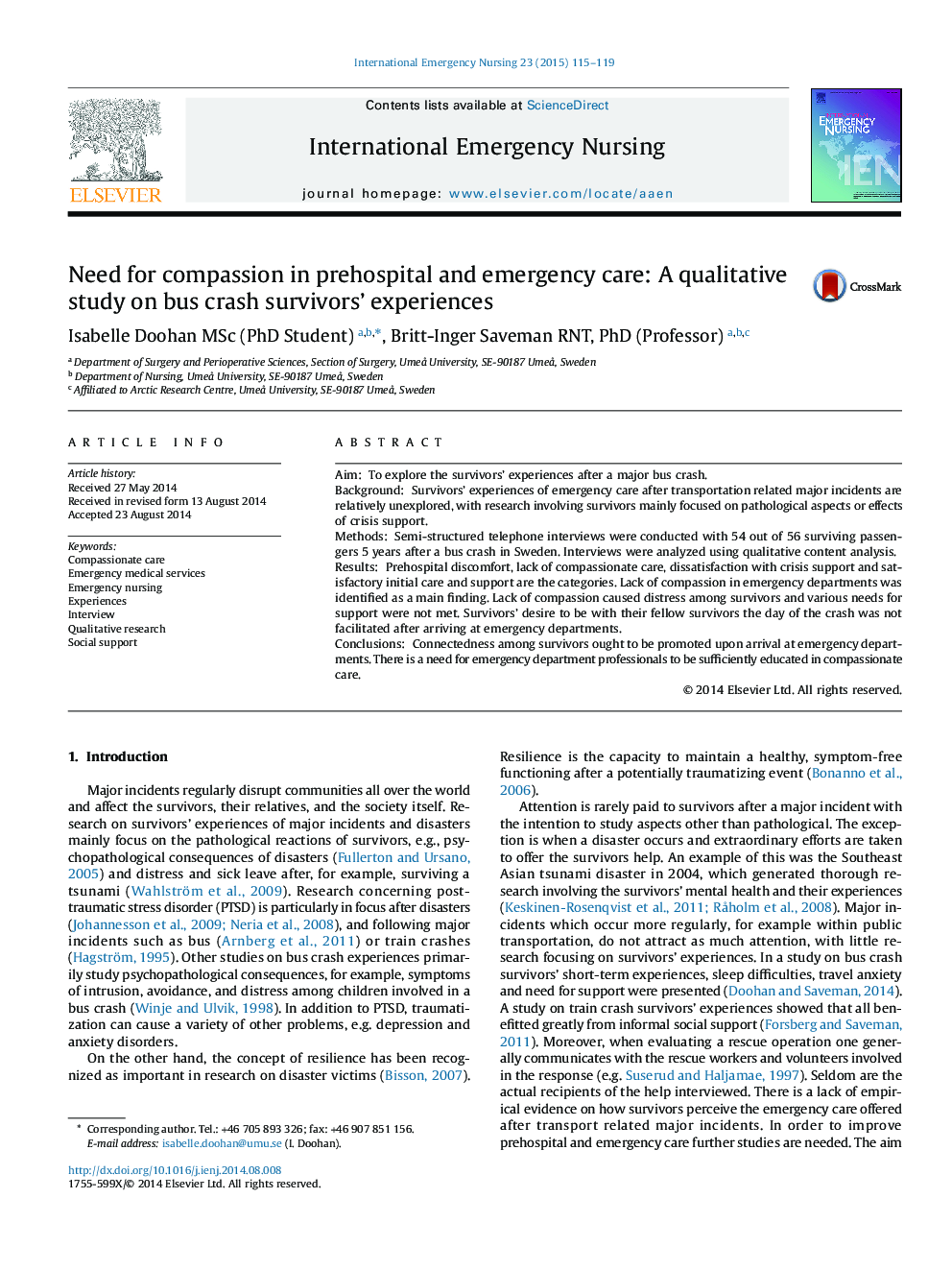| Article ID | Journal | Published Year | Pages | File Type |
|---|---|---|---|---|
| 2609354 | International Emergency Nursing | 2015 | 5 Pages |
•The study reveals how lack of compassionate care in emergency departments can lead to great discomfort and distress among survivors.•Extended knowledge on the survivors' strong desire to spend time with each other and why they ought to be treated as a group in the emergency department.•The importance of facilitating natural ties to family and loved ones as quickly as possible.
AimTo explore the survivors' experiences after a major bus crash.BackgroundSurvivors' experiences of emergency care after transportation related major incidents are relatively unexplored, with research involving survivors mainly focused on pathological aspects or effects of crisis support.MethodsSemi-structured telephone interviews were conducted with 54 out of 56 surviving passengers 5 years after a bus crash in Sweden. Interviews were analyzed using qualitative content analysis.ResultsPrehospital discomfort, lack of compassionate care, dissatisfaction with crisis support and satisfactory initial care and support are the categories. Lack of compassion in emergency departments was identified as a main finding. Lack of compassion caused distress among survivors and various needs for support were not met. Survivors' desire to be with their fellow survivors the day of the crash was not facilitated after arriving at emergency departments.ConclusionsConnectedness among survivors ought to be promoted upon arrival at emergency departments. There is a need for emergency department professionals to be sufficiently educated in compassionate care.
